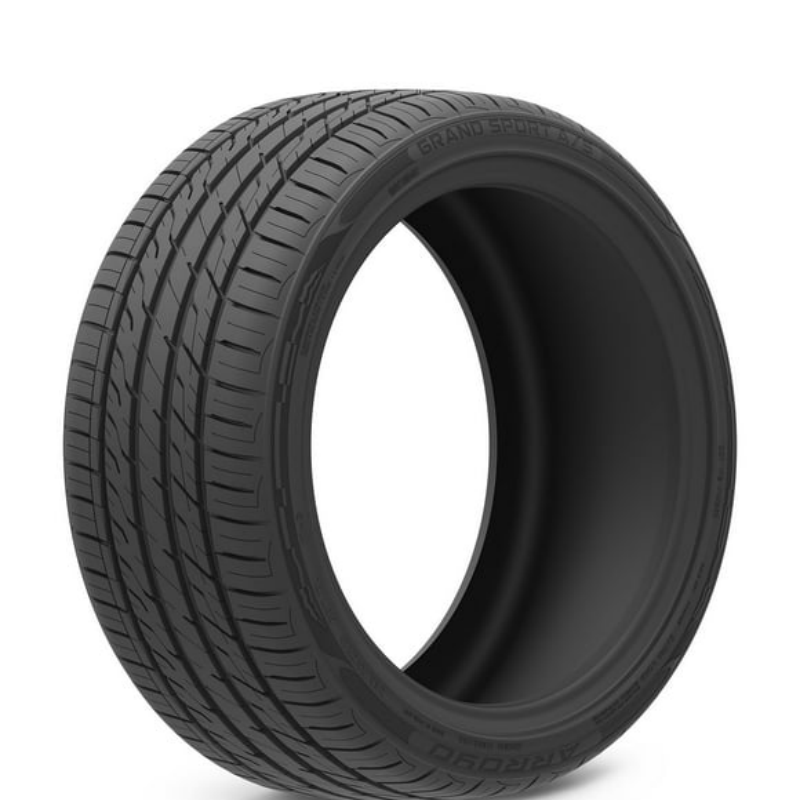Tire rotation is an essential maintenance task in vehicle care that not only prolongs the life of your tires but also helps maintain optimal performance and safety. Understanding how much does rotating tires cost can significantly impact your vehicle’s upkeep budget. While it may seem like a minor service, the financial implications can accumulate over time, especially if neglected. From performance optimization to cost savings, there are numerous reasons why tire rotation should be prioritized in your vehicle maintenance routine. In this article, we will explore various aspects of tire rotation, including the costs involved, the factors that influence pricing, and the benefits of regular rotation.

Understanding Tire Rotation
Tire rotation refers to the practice of moving the tires from one position on the vehicle to another. Typically, this is done in a specific sequence as recommended by the vehicle manufacturer. The primary purpose of tire rotation is to ensure even tire wear, which can significantly enhance the lifespan of your tires and improve your vehicle’s handling and safety. Without regular rotation, tires tend to wear unevenly due to variations in weight distribution and driving patterns, leading to premature tire replacement.
The frequency of tire rotation can vary based on several factors, including the type of vehicle you own, your driving habits, and the type of tires fitted on the vehicle. It is usually recommended to rotate your tires every 5,000 to 7,500 miles, or roughly every other oil change. When considering how much does rotating tires cost, it’s essential to factor in these intervals and how they align with your overall vehicle maintenance schedule.
Factors Influencing Tire Rotation Costs
When asking how much does rotating tires cost, various elements can influence the final price you’ll pay. Understanding these factors can help you make informed decisions about your vehicle maintenance budget.
- Service Location: Costs can vary significantly between different service locations, such as dealerships, independent garages, and tire shops. While dealerships may charge more due to higher labor rates and service quality, independent shops often provide competitive pricing.
- Type of Vehicle: The type of vehicle you own can also affect tire rotation costs. For instance, rotating tires on a standard sedan is usually less complex and may cost less than rotating tires on larger vehicles like SUVs or trucks, which may require more labor due to their size and weight.
- Tire Size & Type: The size and type of tires on your vehicle can impact how much you’ll pay for rotation. Larger tires or specialty tires may require special equipment or additional labor, increasing costs.
- Additional Services: Sometimes, tire rotation services are bundled with other maintenance tasks, such as wheel alignment or tire balancing. In such cases, the overall cost may be higher but can offer better value if multiple services are performed together.
- Promotions and Packages: Seasonal promotions, loyalty programs, or service packages offered by auto service providers can also influence the price. Keep an eye out for these offers to save money.
Average Cost of Tire Rotation
So, how much does rotating tires cost? On average, you can expect to pay between $20 and $50 for a standard tire rotation. Of course, this is a general estimate and may vary based on the factors discussed above. Many tire shops or auto service centers offer special deals, especially if you are a first-time customer or have purchased tires from them.
Additionally, some vehicle manufacturers may provide complimentary tire rotation services as part of a new car purchase or maintenance package. It’s always wise to inquire about such offers when considering how much rotating tires will cost you.
Benefits of Regular Tire Rotation
Regular tire rotation offers a plethora of advantages, proving that this small investment is essential in the long term. Here are some of the key benefits:
- Extended Tire Life: By ensuring even wear across all tires, regular rotation can significantly extend the lifespan of your tires. This means fewer replacements and savings in the long run.
- Improved Performance: Tires that wear evenly contribute to improved handling, traction, and overall vehicle performance. This can make a noticeable difference, particularly in adverse weather conditions.
- Increased Safety: Tires are critical for vehicle stability and control. Regularly rotating your tires helps minimize the risk of blowouts or uneven wear, which can lead to dangerous driving situations.
- Better Fuel Efficiency: Uneven tire wear can negatively impact your vehicle’s fuel efficiency. Regular tire rotation helps maintain balanced tires, potentially saving you money on gas.
DIY vs. Professional Tire Rotation
When considering how much does rotating tires cost, it’s also worthwhile to explore whether you can perform this task yourself. Many vehicle owners are curious about the feasibility of DIY tire rotations. While it’s possible, it does require some equipment and knowledge:
- DIY Tire Rotation Instructions:
- Gather necessary tools, including a hydraulic jack, jack stands, and a lug wrench.
- Carefully lift the car and secure it on the jack stands.
- Remove the lug nuts and take off the tires, rotating them according to the recommended pattern.
- Reattach the tires securely and remove the jack stands.
- Pros of DIY:
- Cost savings by avoiding labor costs.
- Satisfaction of maintaining your vehicle.
- Cons of DIY:
- Requires time and effort.
- Risk of improper installation or safety issues if not done correctly.
For most vehicle owners, it may be more straightforward and safer to have experienced professionals handle tire rotations. They have the necessary tools and experience to perform the service efficiently.

Tips for Finding the Best Tire Rotation Services
When you’re ready to have your tires rotated, it’s vital to choose the right service provider. Here are some tips for finding the best tire rotation services in your area:
- Read Reviews: Online reviews can provide insight into the quality of service offered by local auto shops. Look for providers with positive feedback and a solid reputation for customer service.
- Ask About Warranty: Inquire whether the shop offers any warranties on their tire rotation services, as this can provide peace of mind and additional value.
- Compare Prices: Don’t settle for the first offer you receive. Shop around and compare prices, but remember that the cheapest option isn’t always the best.
- Check for Certifications: Ensure that the technicians working on your vehicle are qualified and certified. This can assure you of quality service and knowledge.
Understanding the Risks of Neglecting Tire Rotation
Failing to rotate your tires can have dire consequences, both financially and in terms of safety. Here’s a rundown of potential issues:
- Increased Tire Wear: Neglecting tire rotation results in uneven wear patterns, which can lead to the need for premature tire replacement. This can significantly raise your long-term maintenance costs.
- Higher Risk of Blowouts: Unevenly worn tires are more prone to blowouts, especially at higher speeds. A blowout can lead to a loss of control over the vehicle, potentially causing accidents.
- Impaired Vehicle Performance: Driving with poorly cared-for tires can adversely affect handling and braking. This diminished control can increase the risk of road accidents, putting not just your safety at risk but also that of other road users.
By understanding these risks, vehicle owners can better appreciate the importance of regular tire rotations as part of their overall car maintenance routine.
Choosing the Right Time for Tire Rotation
Timing is crucial when it comes to tire rotation. Here are some guidelines on how to choose the right time for this essential service:
- Mileage Recommendations: Follow the manufacturer’s recommendations regarding tire rotation intervals. Generally, 5,000 to 7,500 miles is a safe benchmark, but this may vary based on your vehicle and driving habits.
- Prior to Long Trips: Consider having your tires rotated before embarking on long journeys. This ensures even wear and optimal performance, enhancing safety during extended driving periods.
- Seasonal Changes: As mentioned earlier, changing your tires with the seasons (like switching from winter to all-season tires) is an excellent opportunity to ensure they are rotated.
- Scheduled Maintenance Appointments: Combine tire rotation with other scheduled maintenance tasks, such as oil changes or brake inspections. This timely action not only saves money but ensures consistent vehicle upkeep.

Conclusion
In conclusion, knowing how much does rotating tires cost is crucial for taking proactive steps toward vehicle maintenance and safety. Regular tire rotation is an essential aspect of tire management that extends the life of your tires, enhances performance, and contributes to safer driving. Factors such as service location, vehicle type, and additional services can all influence tire rotation costs, but the small investment pays off considerably over time.
Additionally, considering related aspects like tire pressure, wheel alignment, tire types, and seasonal changes can further enhance your tire maintenance routine, ensuring that you maximize your tire’s lifespan. By committing to regular tire rotation, you’re not only safeguarding your vehicle’s performance and safety but also enhancing your overall driving experience. Prioritize this vital maintenance task as part of your broader vehicle care approach for a smoother, safer, and more economical ride.